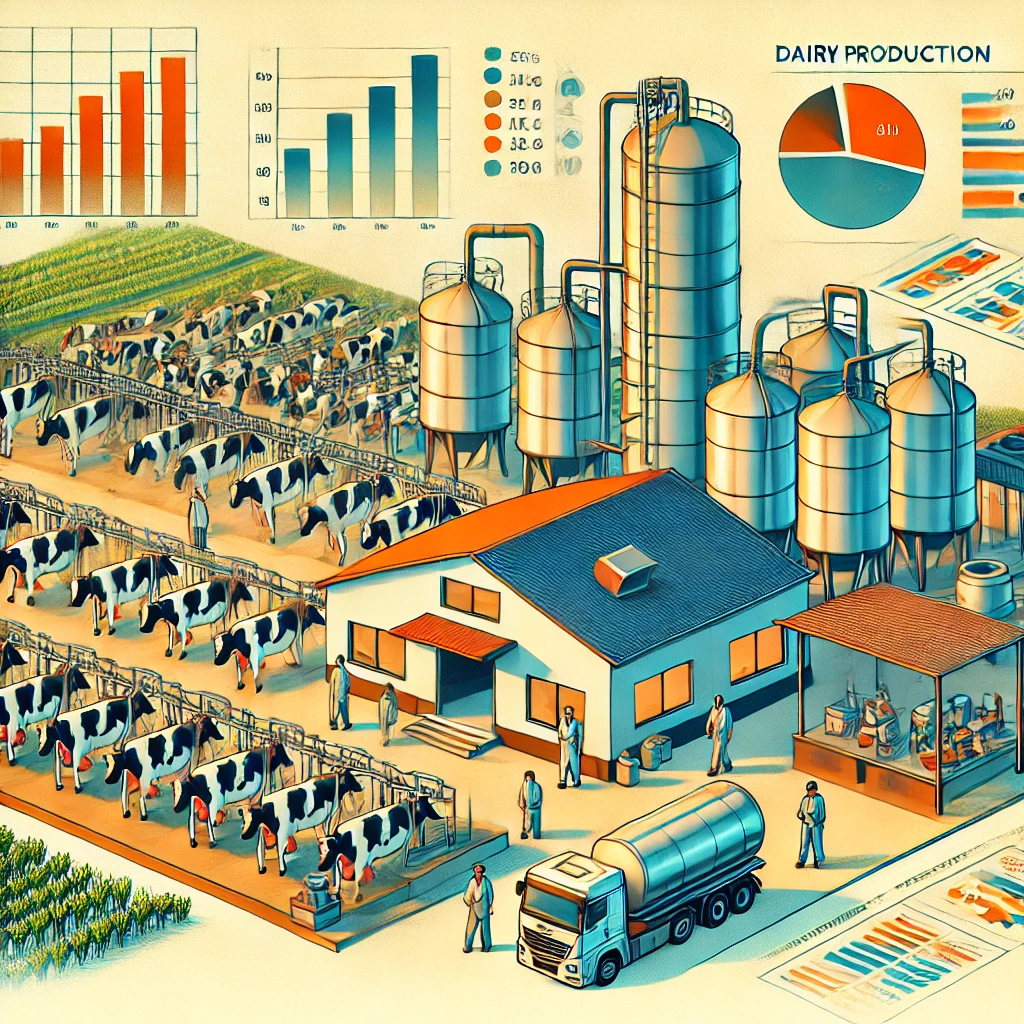The Indian government’s Income Tax Bill 2025 marks a significant shift in the country’s taxation framework by bringing high-earning farming and dairy enterprises under taxation. Historically, agricultural income in India has been exempt from taxation to support small farmers and promote rural development. However, this exemption has occasionally been misused by wealthy individuals to channel non-agricultural income through farm activities, avoiding tax obligations. The new legislation aims to plug these loopholes, ensuring fair taxation while boosting government revenue for agricultural advancements.
Key Provisions of the Income Tax Bill 2025
Progressive Taxation on Agricultural and Dairy Income
The bill introduces a tiered taxation system, ensuring that only high-income earners in the agricultural and dairy sector contribute:
- Up to ₹2.5 lakh: 0% (Exempt)
- ₹2.5 lakh – ₹5 lakh: 5%
- ₹5 lakh – ₹10 lakh: 10%
- ₹10 lakh – ₹25 lakh: 20%
- Above ₹25 lakh: 30%
This framework ensures that small and marginal farmers remain exempt, while large agribusinesses, commercial dairy farms, and high-revenue producers contribute their fair share.
Scope of Taxation
The taxation will apply to various agricultural and allied activities, including:
- Large-scale commercial farms producing crops, dairy, or poultry at scale.
- Dairy businesses exceeding a specific profit threshold (to be determined based on turnover, herd size, and operational scale).
- Farmers engaged in processing, packaging, or adding value to agricultural products.
- Agricultural landowners leasing vast areas for commercial farming.
- Corporate agribusinesses, contract farming operations, and vertically integrated dairy farms.
Impact on the Dairy Sector: Defining “Large Dairy Enterprises”
The dairy industry, one of India’s largest agricultural sub-sectors, will experience significant reclassification and taxation changes.
How Will Large Dairy Enterprises Be Defined?
While small-scale and cooperative dairy farmers will continue to be tax-exempt, the bill introduces clear criteria for what qualifies as a “large dairy enterprise”. Though full guidelines are yet to be finalised, enterprises likely to fall under taxation will include:
- Annual Turnover: Dairy businesses exceeding ₹10 crore in annual revenue may be considered large enterprises for tax purposes.
- Herd Size: Farms with more than 200 milking cows or buffaloes could be classified as large-scale operations.
- Processing Units: Integrated dairy farms that own processing plants for milk, butter, ghee, or cheese will likely fall under taxation.
- Export-Oriented Businesses: Dairy firms that export significant quantities of milk powder, butter, or dairy ingredients could be taxed as commercial enterprises.
- Corporate Dairy Ownership: Dairy businesses owned by corporations, large agribusinesses, or private investors may no longer qualify for agricultural exemptions.
Reclassification of Dairy Income
- Income from dairy production on a small scale (e.g., farmers selling raw milk to local cooperatives) will remain exempt.
- Income from processing and branding dairy products, operating cold chain logistics, or owning branded dairy businesses will be taxed as business income.
- Dairy contract farming agreements (where farmers raise cattle for a corporate entity) will be subject to tax assessment.
Short-Term Concerns vs Long-Term Gains
While the initial impact of taxation on high-earning dairy enterprises may raise concerns over increased operational costs, the long-term benefits are notable:
- Better Financial Transparency: Requiring large dairy firms to maintain proper accounts will improve access to banking, credit, and investment opportunities.
- Sector Modernisation: Tax revenues could be reinvested into dairy infrastructure, including milk processing units, chilling plants, and AI-driven cattle health monitoring.
- Encouraging Value Addition: Tax incentives could encourage high-end dairy processing, reducing India’s reliance on imported dairy ingredients.
- Fair Competition: By ensuring that wealthy dairy enterprises contribute, the bill prevents unfair tax advantages that previously allowed some firms to evade taxation.
Final Thoughts: A Step Towards a Sustainable Dairy Industry
The Income Tax Bill 2025 represents a transformative shift for India’s dairy and agricultural sector. While the immediate reaction may be mixed, the bill provides long-term stability, financial transparency, and sustainable growth.
For dairy businesses, the focus now must be on adapting to the new regulations, maintaining financial clarity, and leveraging available incentives to drive innovation and efficiency.
Would you like a detailed analysis on how taxation might influence dairy exports or farmer cooperatives? Let me know how I can refine this further!
